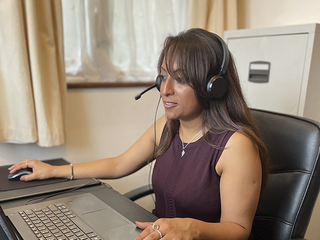Staying safe during CLL treatment
Because CLL affects your immune system, your hospital team will advise you how to stay safe while you’re having treatment.
Protecting against infection
You’re likely to have an increased risk of infection during your treatment and for several months after.
If you notice any symptoms of infection, or you just feel a bit unwell, report it to your hospital team. You won’t be bothering them unnecessarily – it’s about taking sensible action to protect yourself.
Your team can also advise you on how to avoid infection. For instance, they may suggest you avoid housework and gardening for a while, or stay away from crowds or anyone with a cold.
We have more information about managing your risk of infection. Ask your hospital team for advice about what you should do and what you should avoid while you’re having treatment.
Prophylaxis (preventive treatment)
Your hospital team may also recommend you take medication to reduce the risk of infection during and after your treatment for CLL. This might include medicines to prevent bacterial, viral or fungal infections – this is known as prophylaxis or prophylactic treatment.
Immunoglobulin replacement therapy
Immunoglobulins are antibodies that help your body fight off germs.
If the level of immunoglobulins in your blood is low, you may need to replace them. This is normally done through a drip into a vein, similar to having a blood transfusion.
Supportive care with G-CSF
Neutrophils are a type of white blood cell and are part of your immune system. If these have fallen to very low levels after your treatment or following an infection, you may need injections of G-CSF (granulocyte-colony stimulating factor) to raise the number of healthy neutrophils in your blood. This involves a small injection under the skin (subcutaneously) for three to five days.
The injection doesn’t hurt but may sometimes cause some aching in your back or other bones.
Irradiated blood
If you’ve been treated with the chemotherapy drugs fludarabine or bendamustine and you then need a blood transfusion, you’ll need blood that has been treated with radiation (irradiated blood). This kills any white cells in the donor’s blood and protects you against a very rare type of transfusion reaction.
You should be given a card to keep with you, explaining that you need irradiated blood. You may also want to wear a special bracelet to give this information to doctors caring for you if you’re unconscious or unable to explain. You can get a bracelet or ‘dog tag’ from a charity called MedicAlert.
If you need an emergency blood transfusion to save your life, you can have non-irradiated blood so that the treatment isn’t delayed.

Worried about anything or have questions?
If you need someone to talk to, please don't hesitate to contact our Support Service by phone or email.
